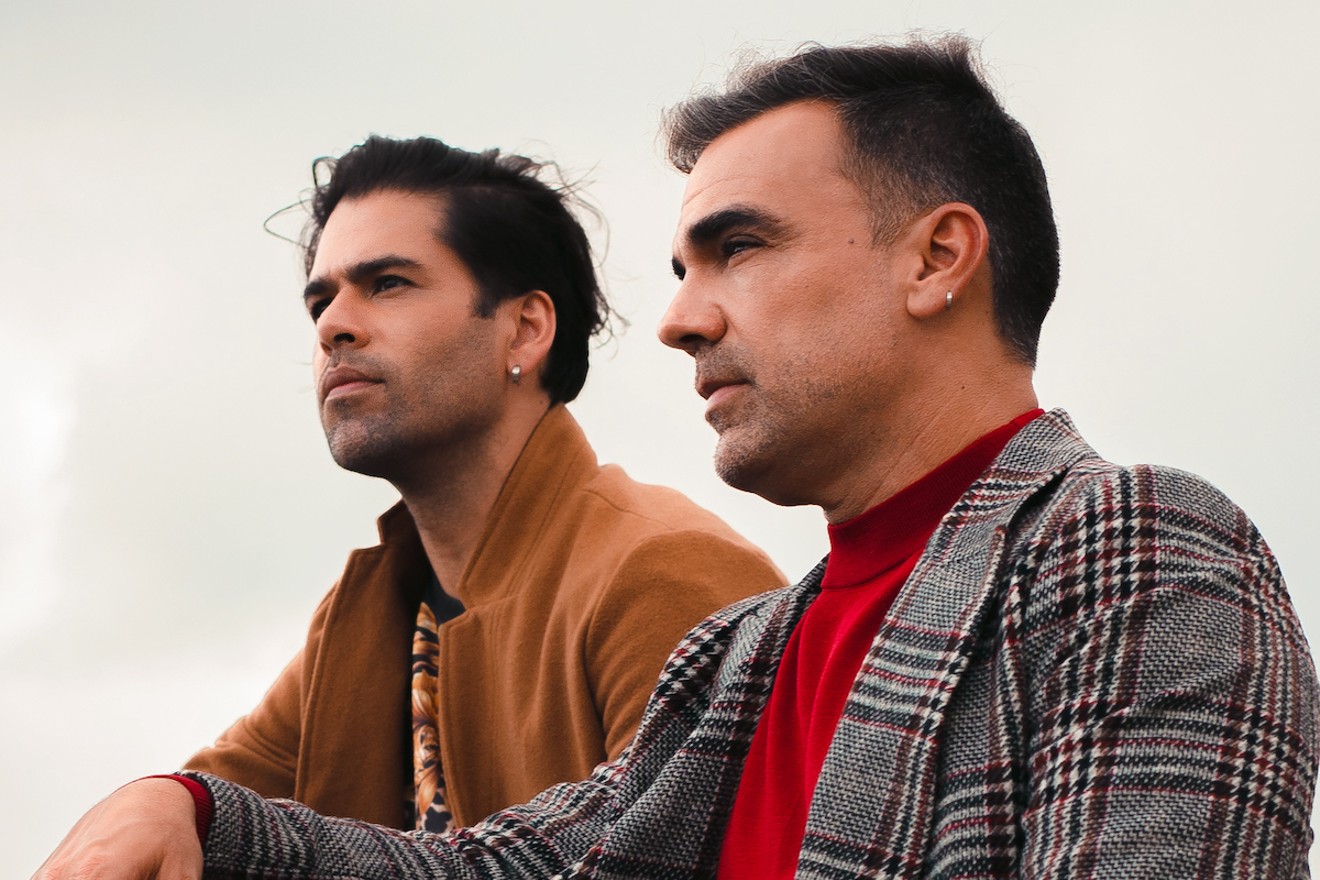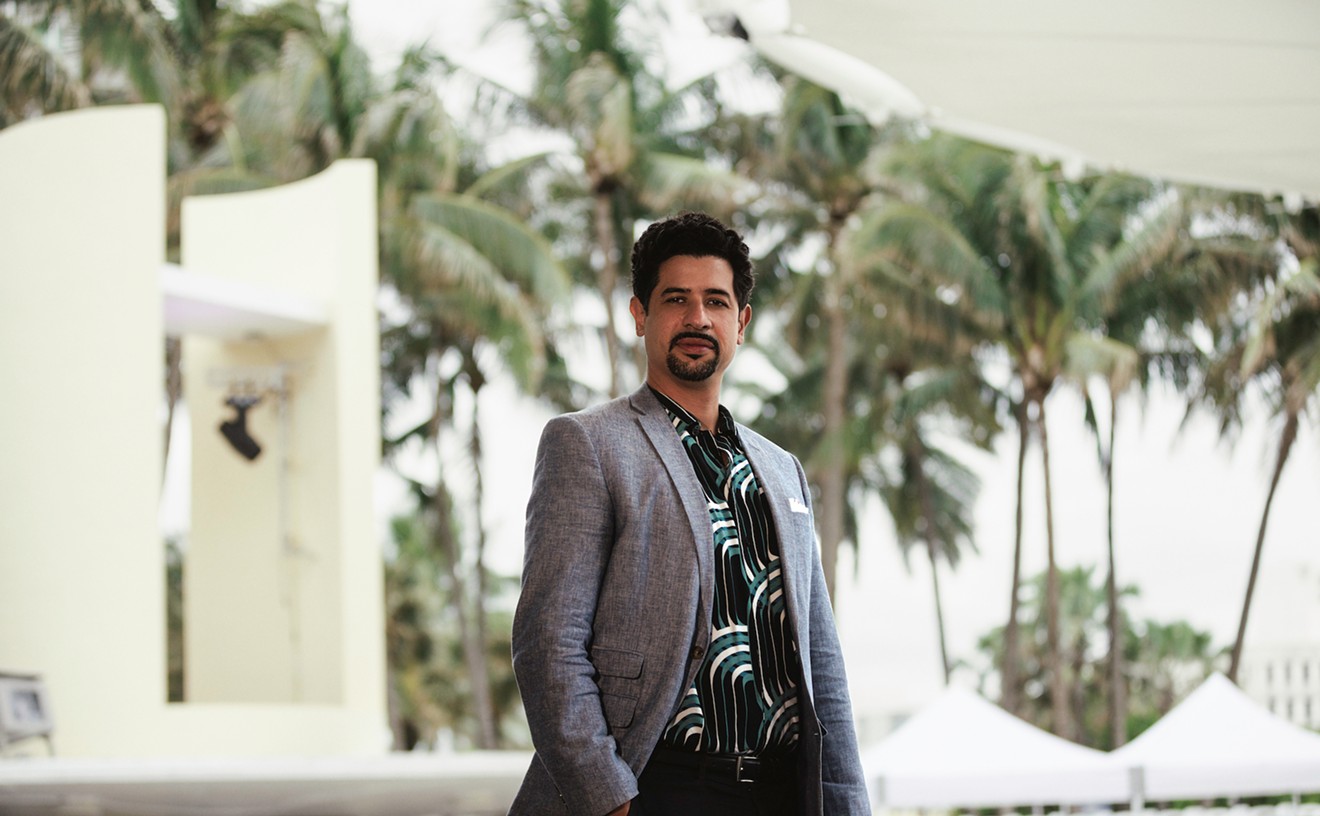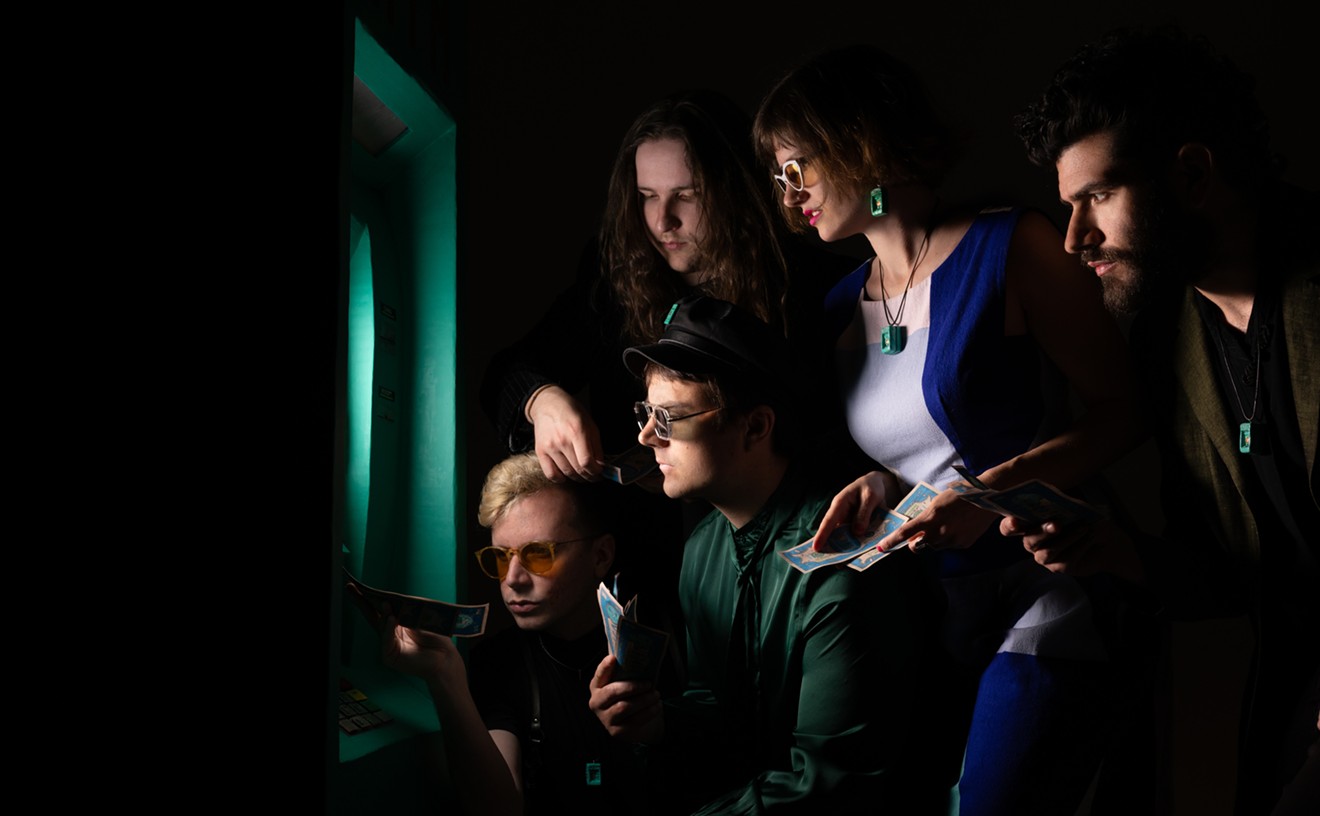The 1990s may have been the peak decade for rock en español. Acts like Café Tacvba, Los Fabulosos Cadillacs, Enanitos Verdes, and Aterciopelados were all over MTV Latin America. Even Shakira, who broke into the Anglo market as a pop star, garnered fame in Latin America on the heels of her decidedly alternative-rock album, 1995's Pies Descalzos — the Spanish-language equivalent to Alanis Morissette's Jagged Little Pill.
Also in the scene was Venezuelan rock band Caramelos de Cianuro, which got its start in 1991.
The quartet dropped its debut EP, Las Paticas de la Abuela, in 1992, with its debut album, Cuentos Para Adultos, released the following year. Early singles, like "Nadando a Traves de la Galaxia" and "Tu Mamá Te Va a Pegar," blend styles like punk, alternative, and psych-rock that fit perfectly into the kind of rock music that was dominating the charts the world over in the early '90s.
In 1996, Caramelos de Cianuro signed to Polydor and released their major-label debut, Harakiri City. The album leaned a bit more into the style of pop-punk that bands like Green Day were popularizing in the States.
If at one point it appeared rockeros like Caramelos de Cianuro were poised to gain widespread recognition beyond Spanish-speaking audiences, that didn't exactly come true. Even the Latin craze in the early 2000s that saw many acts record English-language crossover albums only lasted for a while before it fizzled out.
With the spotlight again shining brightly upon urbano acts, it would be safe to assume that rock en español — like rock's influence in general — is all but dead. But Caramelos de Cianuro still sees it as a genre worthy of exploring and pushing forward.
"Bands continue making music — bands from Argentina, Mexico, and even in Miami," bassist Pável "El ruso" Tello tells New Times from Caracas. "Perhaps if a person goes by the numbers, rock doesn't pull the same numbers as Latin music. However, numbers don't necessarily sell tickets — that's the dilemma."
Caramelos de Cianuro, currently consisting of Tello and frontman Asier Cazalis, don't have a problem selling tickets. The duo is on a four-city tour that kicked off on August 21 in San Juan and will make its way to the Fillmore Miami Beach on Friday, September 3. Tello and Cazalis are on the road supporting, Control, the band's first studio album in six years.
So what took so long?
"People outside of the band see the periods between albums as an eternity, but we haven't stopped touring," Tello says. "Touring takes up a lot of our time. They are very extensive, and there are a lot of Venezuelans living outside of the country. You have to have your body in top physical form for touring, so your mindset isn't always ready to produce new music. During the few pauses we do between concerts, we work very little on new songs."
Beyond touring, it's not like Tello and Cazalis weren't releasing music. During that six-year period, the band put out Acústico Retrovisor, an acoustic reimagining of Caramelos de Cianuro's body of work, as well as two live albums, Live In Paris: Lado A and Lado B.
The new disc, which dropped in May, features recent singles "Booty Call" and "Escalofrío." The former features a more carefree vibe that Tello says was inspired by the time the band spent in Miami during the album's recording. (There were also recording sessions in Buenos Aires and Caracas.)
"The songs on [Control] ended up in sort of chronological order," Tello explains. "We started with a trip to Miami, where the compositions we started there had influence from Miami nightlife and festivities. In one way or another, the album ends up in adulthood, with a lot of nostalgia and emotions."
The album also allowed Tello and Cazalis to have more control over the band's sound. With only two band members, Tello says the decision-making process has become easier. At the same time, the lessons they learned during the production of Acústico Retrovisor allowed them to learn new skill sets that they were able to apply during the recording of Control.
"Being just two of us now, we say that we halve the problems and double the possibility," Tello says. "We recorded with incredible Argentinian musicians, including musicians who recorded with Gustavo Cerati and Enanitos Verdes. I think that's the advantage where you are in a duo that needs guests musicians to complete your work. You quickly realize that the musicians only help to make your songs better."
In an era when artists seem to be forgoing the album format, Tello says the band is still championing LPs as a way to connect with fans.
"These days, acts are releasing songs every three months, and after having five or six songs out, they'll release an album," he notes." But once the album comes out, you've already heard all the songs. We still believe that the record needs to be presented in a completed format.
"[Control] is a journey that we did over two or three years, packaged into 40 minutes."
Caramelos de Cianuro. 8 p.m. Friday, September 3, at the Fillmore Miami Beach, 1700 Washington Ave., Miami Beach; 305-673-7300; fillmoremb.com. Tickets cost $49 to $200 via livenation.com.
[
{
"name": "Air - MediumRectangle - Inline Content - Mobile Display Size",
"component": "19274298",
"insertPoint": "2",
"requiredCountToDisplay": "2"
},{
"name": "Editor Picks",
"component": "17482312",
"insertPoint": "4",
"requiredCountToDisplay": "1"
},{
"name": "Inline Links",
"component": "18711090",
"insertPoint": "8th",
"startingPoint": 8,
"requiredCountToDisplay": "7",
"maxInsertions": 25
},{
"name": "Air - MediumRectangle - Combo - Inline Content",
"component": "17482310",
"insertPoint": "8th",
"startingPoint": 8,
"requiredCountToDisplay": "7",
"maxInsertions": 25
},{
"name": "Inline Links",
"component": "18711090",
"insertPoint": "8th",
"startingPoint": 12,
"requiredCountToDisplay": "11",
"maxInsertions": 25
},{
"name": "Air - Leaderboard Tower - Combo - Inline Content",
"component": "17482313",
"insertPoint": "8th",
"startingPoint": 12,
"requiredCountToDisplay": "11",
"maxInsertions": 25
}
]












